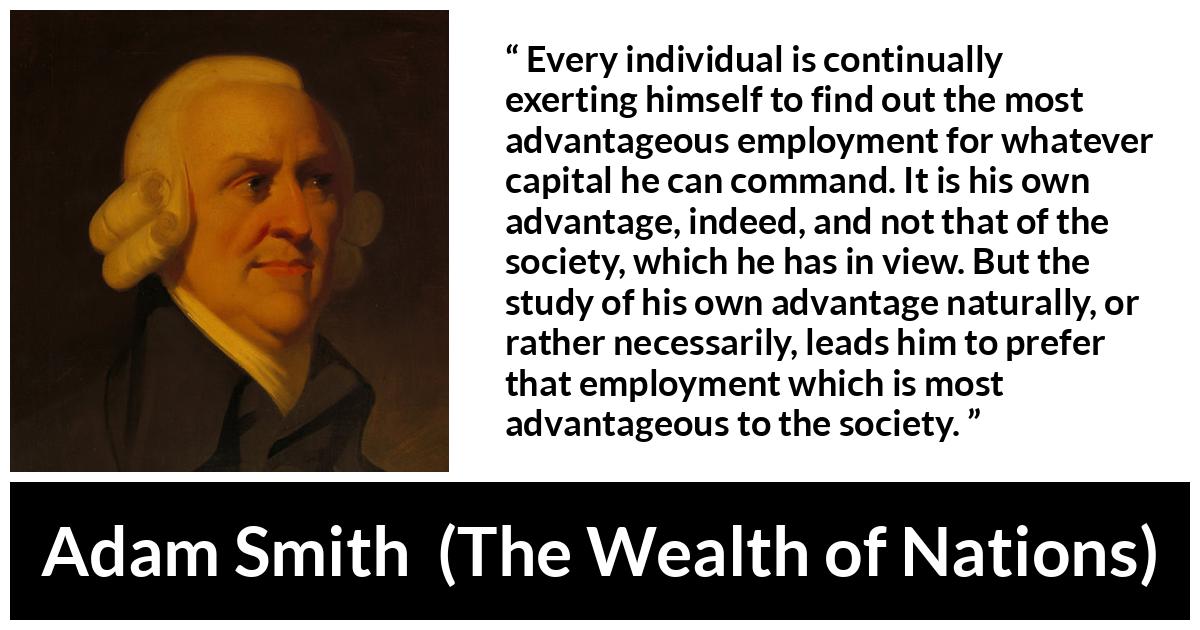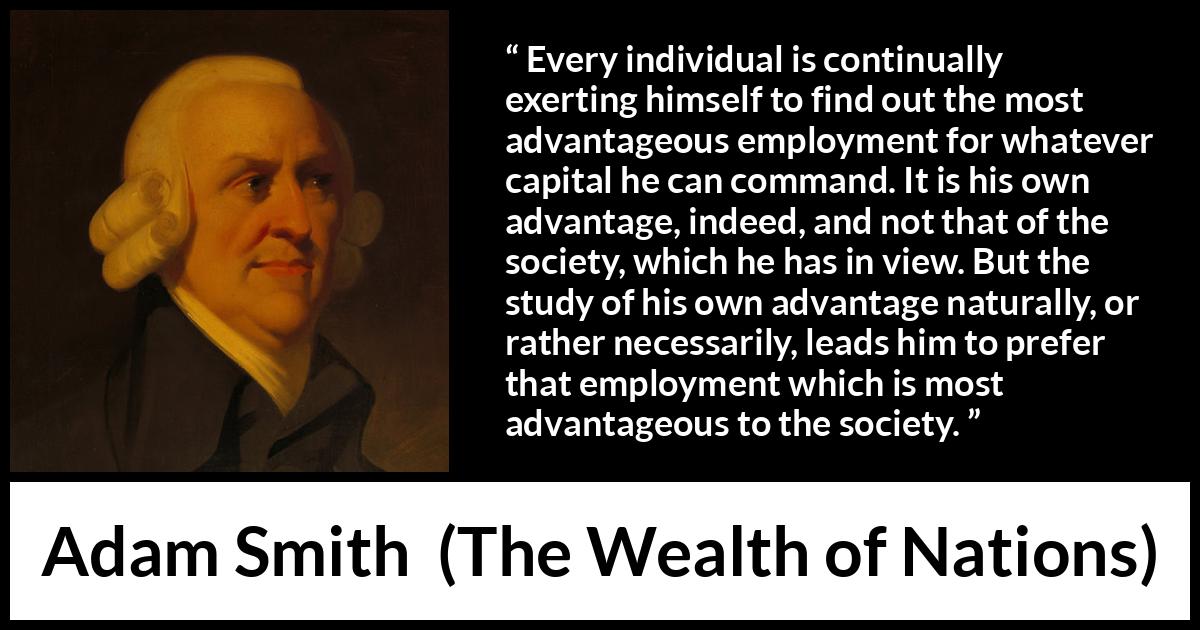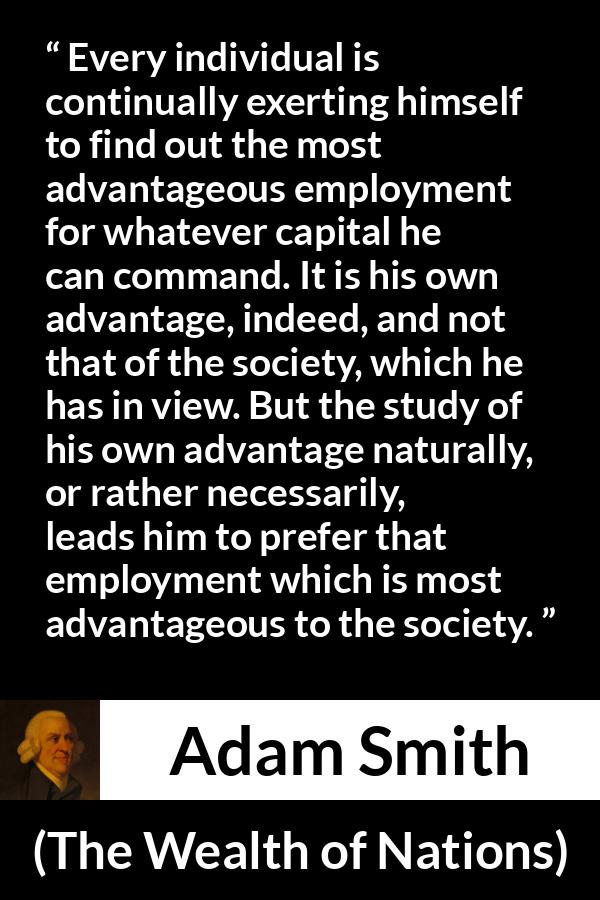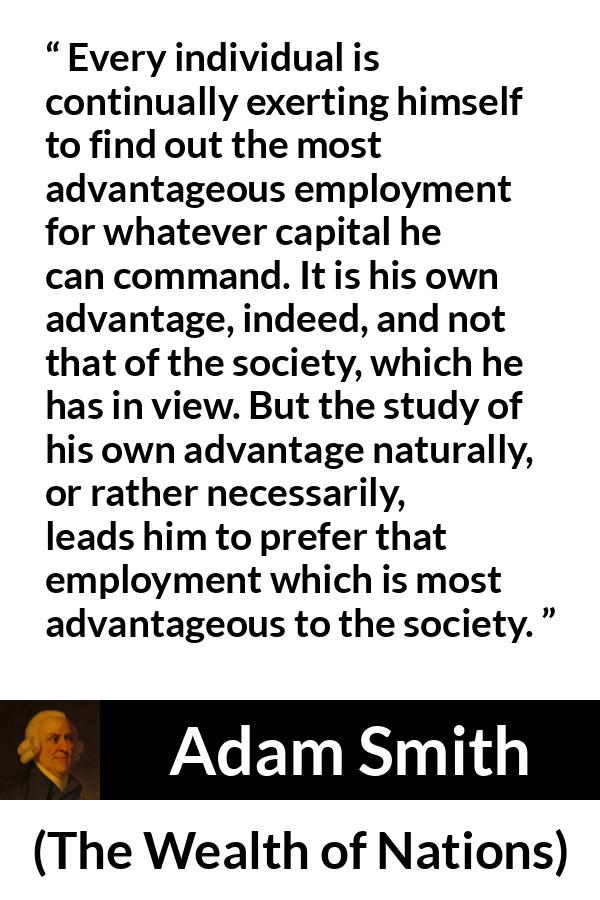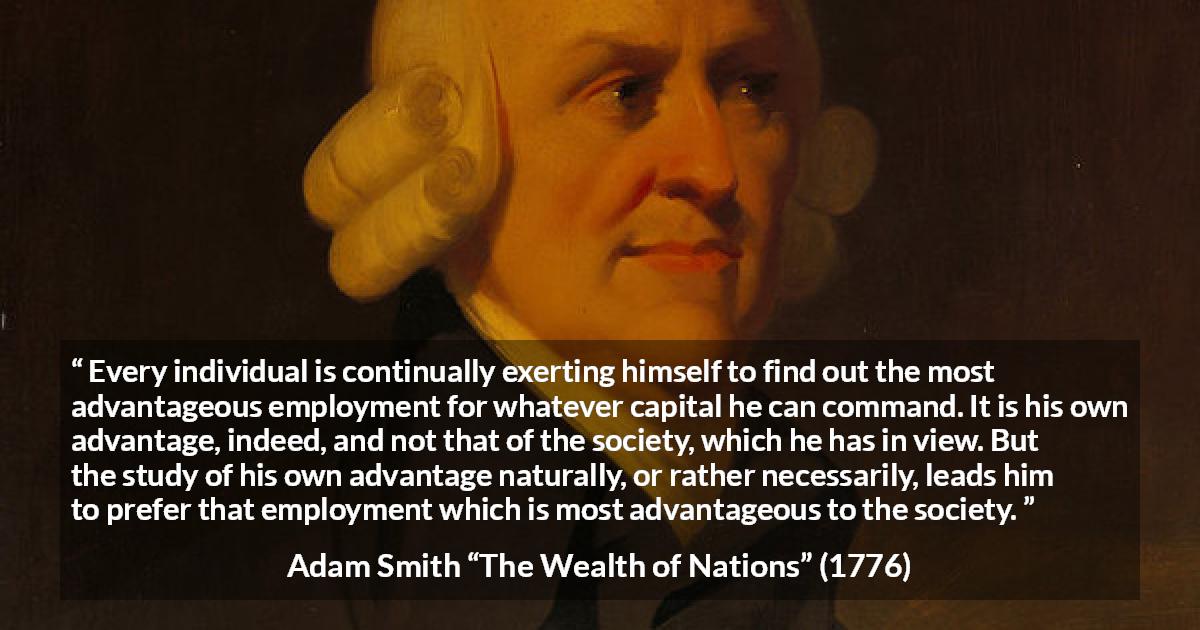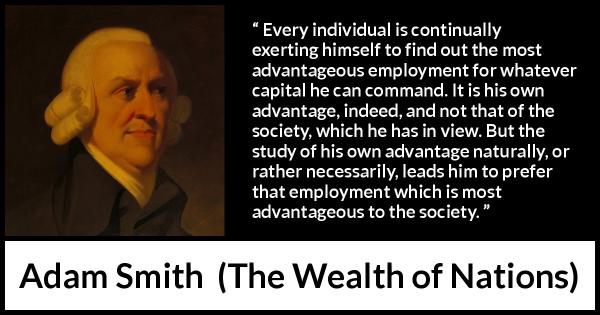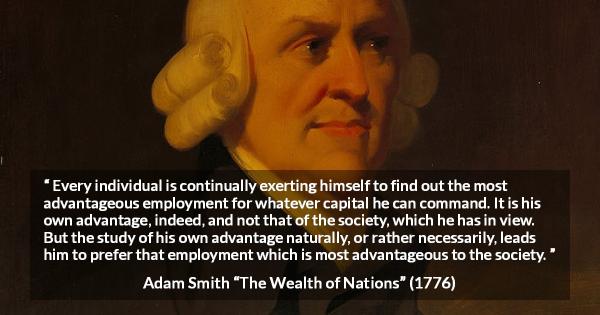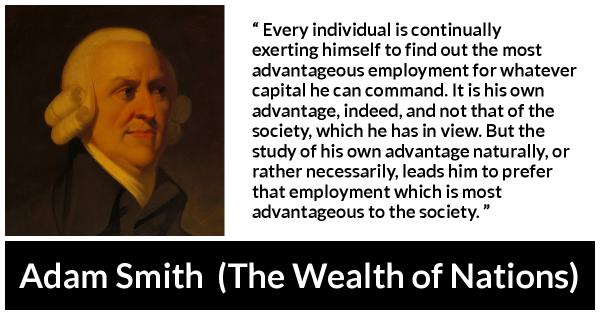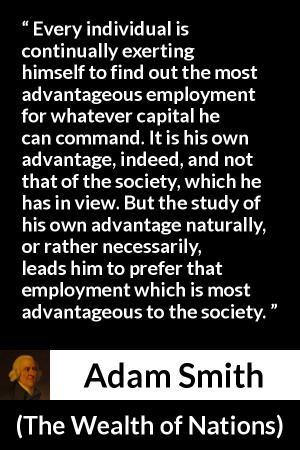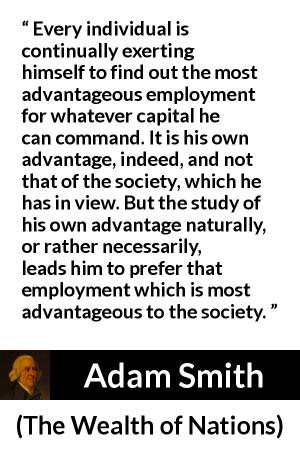“ Every individual is continually exerting himself to find out the most advantageous employment for whatever capital he can command. It is his own advantage, indeed, and not that of the society, which he has in view. But the study of his own advantage naturally, or rather necessarily, leads him to prefer that employment which is most advantageous to the society. ”
Adam Smith, The Wealth of Nations (1776). copy citation
| Author | Adam Smith |
|---|---|
| Source | The Wealth of Nations |
| Topic | society advantage individual |
| Date | 1776 |
| Language | English |
| Reference | An Inquiry into the Nature and Causes of the Wealth of Nations |
| Note | |
| Weblink | http://www.gutenberg.org/files/3300/3300-h/3300-h.htm |
Context
“It can only divert a part of it into a direction into which it might not otherwise have gone; and it is by no means certain that this artificial direction is likely to be more advantageous to the society, than that into which it would have gone of its own accord.
Every individual is continually exerting himself to find out the most advantageous employment for whatever capital he can command. It is his own advantage, indeed, and not that of the society, which he has in view. But the study of his own advantage naturally, or rather necessarily, leads him to prefer that employment which is most advantageous to the society.
First, every individual endeavours to employ his capital as near home as he can, and consequently as much as he can in the support of domestic industry, provided always that he can thereby obtain the ordinary, or not a great deal less than the ordinary profits of stock.” source
Every individual is continually exerting himself to find out the most advantageous employment for whatever capital he can command. It is his own advantage, indeed, and not that of the society, which he has in view. But the study of his own advantage naturally, or rather necessarily, leads him to prefer that employment which is most advantageous to the society.
First, every individual endeavours to employ his capital as near home as he can, and consequently as much as he can in the support of domestic industry, provided always that he can thereby obtain the ordinary, or not a great deal less than the ordinary profits of stock.” source
